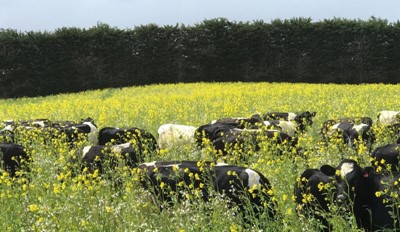Science has come charging to the rescue of regenerative agriculture in NZ.

I've had some feedback from a client that thought from my articles that I am a bit too way out when it comes to farming.
He was right.
Compared to mainstream farmers I am keenly interested in new ways of doing things that align with my values, which are to:
Where does regenerative farming come in?
I have only known about regenerative farming for a year or so, but it strikes a big chime with me. It fits with my values. Makes it very easy and quick for me to latch onto.
But I am not a farmer earning my living off the land, so I am not walking the talk in that sense.
I practice regenerative farming as much as I can on my half acre by making sure the soil is covered at all times with plants or mulch (compost, 'forest floor', other woody plants like you see lying in a forest, and straw or lucerne), by investigating and incorporating anything that is helpful to soil microbes (e.g. biochar, vermacast (check out MyNoke here), seaweed, fish byproducts, animal manure, wood ash, rock dust and compost).
What I want to say to traditional farmers, just keep an open mind and look for ways of doing things better. Regenerative farming might be a dead end for you, but unless you keep asking great questions you won't find any great answers.
When I heard there was a regenerative soil conference at Lincoln University coming up on 7 and 8 March 2020 wild horses couldn't keep me away. I am off.
If you want to see what the future of farming could look like check out The Regenerative Soil Solution Conference held by ODPG, see here.
ODPG stands for Organic Dairy & Pastoral Group. They describe themselves as a network of organic, regenerative and biological producers in the dairy, sheep, beef and general pastoral industries.
I'll let you know how I get on.
Keep asking great questions ...